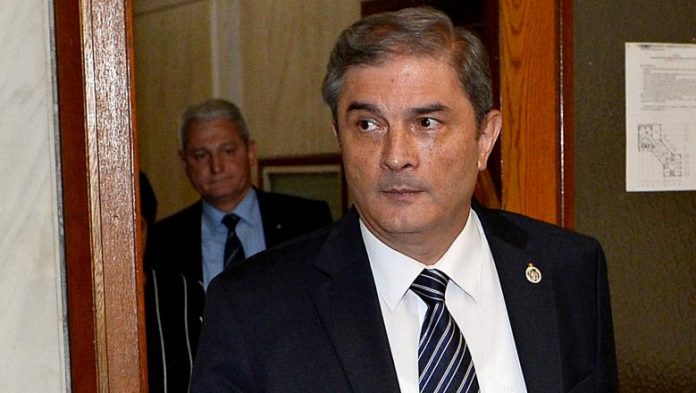A former top spy has criticized Romania’s lack of strategy in Moldova and compared his country’s strategy unfavorably with that of neighboring Hungary in a rare interview which commentators called the harshest attack by a retired senior intelligence officer in the last 30 years.
It is very unusual for former spy chiefs to publicly discuss politics and national strategies at length.
Silviu Predoiu who was deputy chief of the Romania’s Foreign Intelligence Agency, SIE, for 13 years, retired last year and is now a consultant, counting former Prime Minister Victor Ponta among his clients.
He avoided making direct statements about many of the topics he was asked about in the interview with Radio Free Europe, but still revealed details about what goes on behind the scenes and the way the agency operates.
“The secret services have influence in politics because that’s what politics wants,” Predoiu told Radio Free Europe.
“Politicians come to the services, not to ask them(for information) but to ask them what they should do. That’s the problem. They don’t say ‘look what I want to do (this) in X space and based on the information received, I reached the conclusion that that that’s what needs to be done. The politician says ‘But what do you think should be done in X space.’?
Predoiu, 61, joined the agency months after the 1989 collapse of communism and became the deputy chief in 2005 until he retired in 2018. He now offers his services as a consultant.
In the interview he criticized President Klaus Iohannis, who is a political rival of his client Ponta.
“You can’t have a double talk, when you go abroad, you say that Romania is a pole of stability, an exporter of regional security and after that at home, you say you are at war with one party or another. You can be at war with a politician, but not with a party,” he said without mentioning the president by name. Iohannis says the Social Democrats are a danger to Romanian democracy.
“I present (Ponta) with my ideas when he asks, and he proceeds, it’s an
exchange,” he said, praising him for being “a person who knows how to recognize
his mistakes.”
He suggested that Romania had been wrong-footed in Moldova, where the pro-Russian Socialist Party has made gains in recent months. Romania’s government took days to react when an unlikely governing alliance was announced in June between the Socialists and pro-European group ACUM, that was praised by Moscow and the European Union.
Predoiu said that Moldova’s pro-Russian President Igor Dodon “was secretly filmed saying he periodically gets financing from Moscow. No? This information didn’t upset Brussels or Bucharest, even less Moscow,” he said, suggesting he was frustrated that Bucharest had been co-opted into accepting an unpalatable alliance.
When he was in the agency, he said Romania was the second biggest contributor of intelligence to NATO. “We are good, we are very good for NATO,” he said without providing details, but suggesting Romania should be getting more back from the alliance.
He criticized Romanians’ lack of a strategy and infighting in domestic politics, comparing it to neighboring Hungary. It has a strategy “while we don’t, or as a citizen I don’t see one,” he said.
Hungary clearly “ wants to keep cross-border connections, economic, cultural and other links with ethnic Hungarian minorities who live in neighboring countries.
“It all depends on how much they (Hungary) are allowed. We are more generous. We are focused on domestic issues. We haven’t identified our enemies.”
Asked whether the agency had journalists working for it, he said it didn’t directly set out to recruit journalists, but when seeking to get information from a minister about a certain subject, officers would „begin to look at the minister as someone who has information, through people who have easy access to the minister, and you discover the correspondent from such and such newspaper.”
Predoiu says in his newfound role as consultant means: “I don’t advise, I sell time. I sell time in the sense that I worked for 34 years and I think I learned a lot of things in my professional life that can help other people, (such as) I learned how to save time so I can spend more time with my family and spend more time on personal development.”
.



















